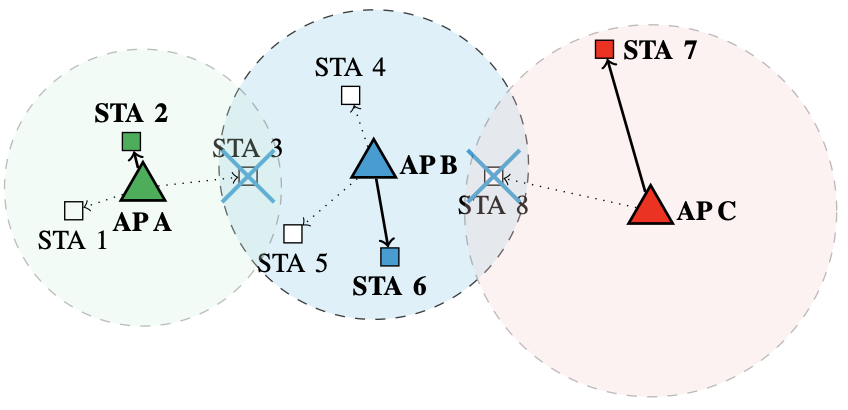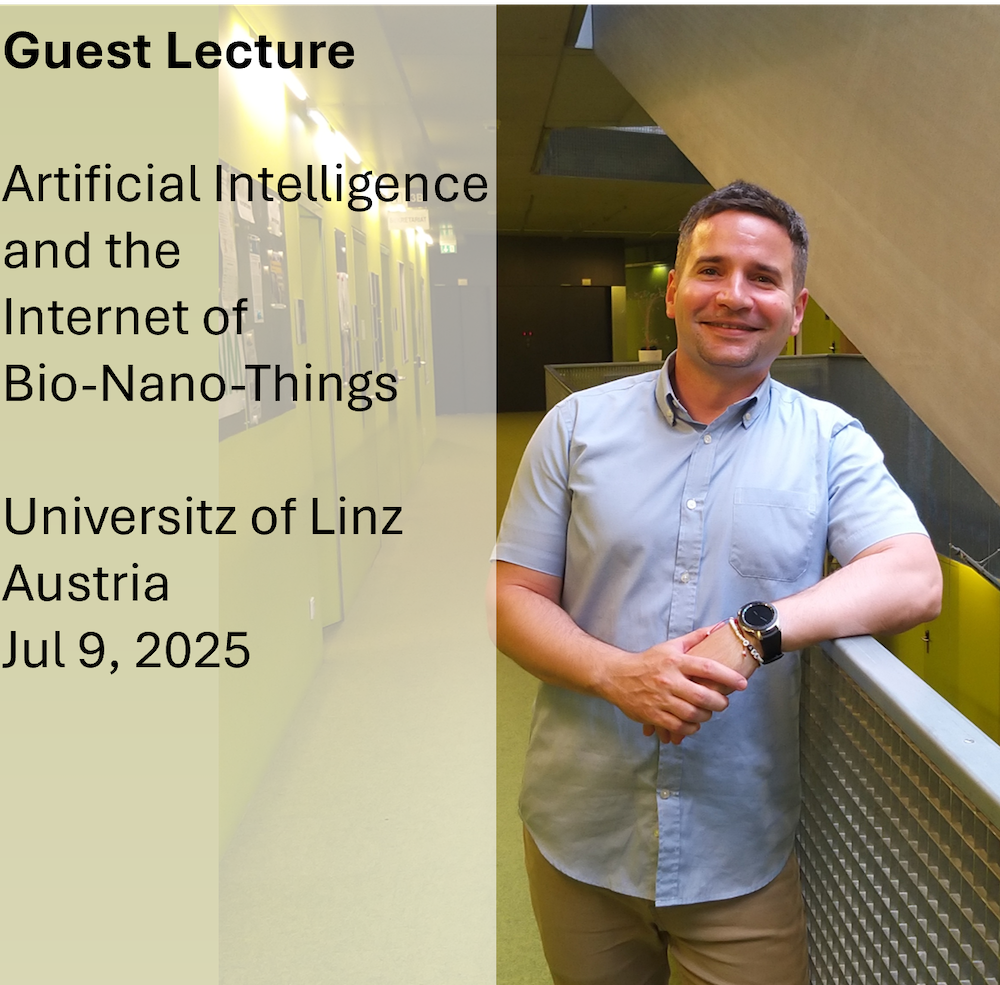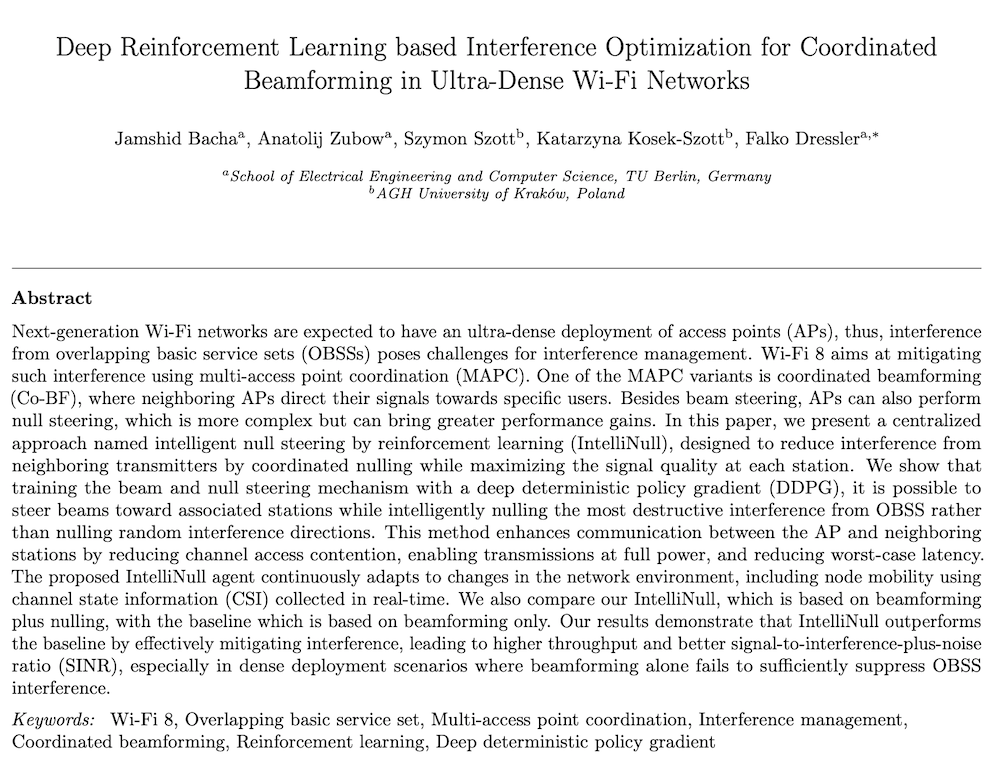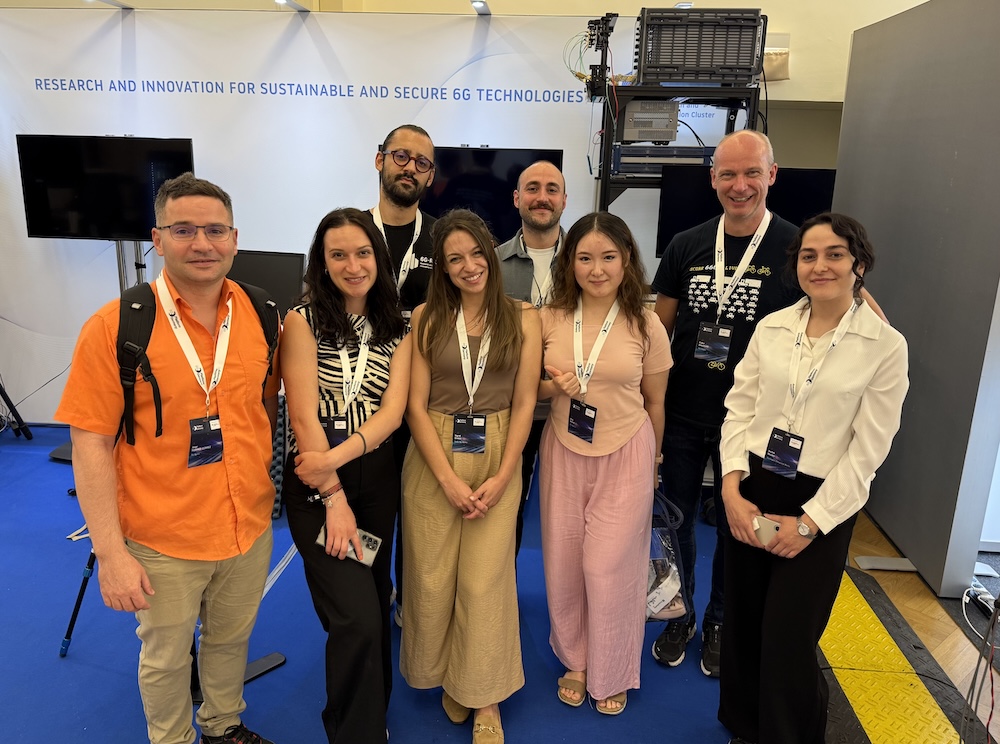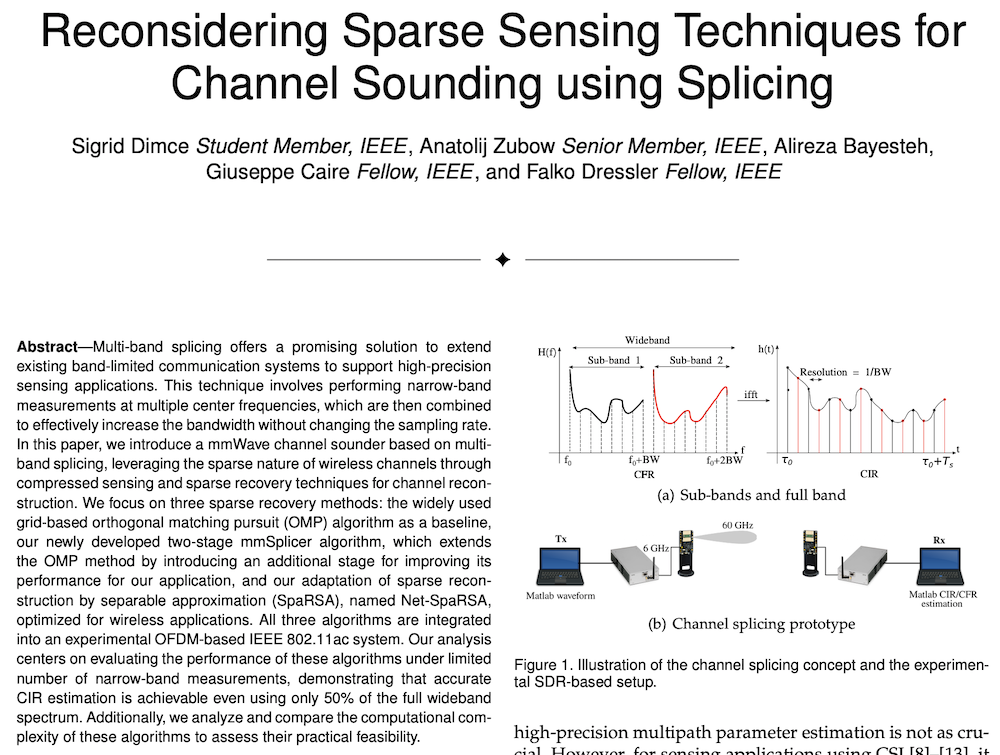Literature Database Entry
laskos2024towards
Christos Laskos, Sigrid Dimce, Anatolij Zubow and Falko Dressler, "Towards Virtual to Real-world Transfer Learning for Mobile mmWave Beam Tracking," Proceedings of IEEE Global Communications Conference (GLOBECOM 2024), Cape Town, South Africa, December 2024, pp. 2684–2689.
Abstract
Adaptive beamforming is an enabling technology for millimeter-wave-based wireless communication which is used by many standards like 3GPP NR and IEEE 802.11ay. Supporting user mobility is challenging as efficient beam tracking is required. Therefore, a variety of beam tracking techniques have been proposed, many of which are machine learning (ML)-based. However, ML approaches are often not of practical use due to the long and complex learning phase. In this paper, we show the feasibility of virtual to real-world transfer learning. Our solution significantly speeds up the learning process as the learning happens mostly in a simulated environment and requires only little additional learning in the real-world deployment. As proof-of-concept, we implemented and evaluated a low-complexity beam tracking based on deep Q-network (DQN) reinforcement learning. The results reveal a substantial speed-up by a factor of 3× using transfer learning.
Quick access
Original Version ![]() (at publishers web site)
(at publishers web site)
Authors' Version ![]() (PDF on this web site)
(PDF on this web site)
BibTeX ![]()
Contact
Christos Laskos
Sigrid Dimce
Anatolij Zubow
Falko Dressler
BibTeX reference
@inproceedings{laskos2024towards,
author = {Laskos, Christos and Dimce, Sigrid and Zubow, Anatolij and Dressler, Falko},
doi = {10.1109/GLOBECOM52923.2024.10900958},
title = {{Towards Virtual to Real-world Transfer Learning for Mobile mmWave Beam Tracking}},
pages = {2684--2689},
publisher = {IEEE},
address = {Cape Town, South Africa},
booktitle = {IEEE Global Communications Conference (GLOBECOM 2024)},
month = {12},
year = {2024},
}
Copyright notice
Links to final or draft versions of papers are presented here to ensure timely dissemination of scholarly and technical work. Copyright and all rights therein are retained by authors or by other copyright holders. All persons copying this information are expected to adhere to the terms and constraints invoked by each author's copyright. In most cases, these works may not be reposted or distributed for commercial purposes without the explicit permission of the copyright holder.
The following applies to all papers listed above that have IEEE copyrights: Personal use of this material is permitted. However, permission to reprint/republish this material for advertising or promotional purposes or for creating new collective works for resale or redistribution to servers or lists, or to reuse any copyrighted component of this work in other works must be obtained from the IEEE.
The following applies to all papers listed above that are in submission to IEEE conference/workshop proceedings or journals: This work has been submitted to the IEEE for possible publication. Copyright may be transferred without notice, after which this version may no longer be accessible.
The following applies to all papers listed above that have ACM copyrights: ACM COPYRIGHT NOTICE. Permission to make digital or hard copies of part or all of this work for personal or classroom use is granted without fee provided that copies are not made or distributed for profit or commercial advantage and that copies bear this notice and the full citation on the first page. Copyrights for components of this work owned by others than ACM must be honored. Abstracting with credit is permitted. To copy otherwise, to republish, to post on servers, or to redistribute to lists, requires prior specific permission and/or a fee. Request permissions from Publications Dept., ACM, Inc., fax +1 (212) 869-0481, or permissions@acm.org.
The following applies to all SpringerLink papers listed above that have Springer Science+Business Media copyrights: The original publication is available at www.springerlink.com.
This page was automatically generated using BibDB and bib2web.

